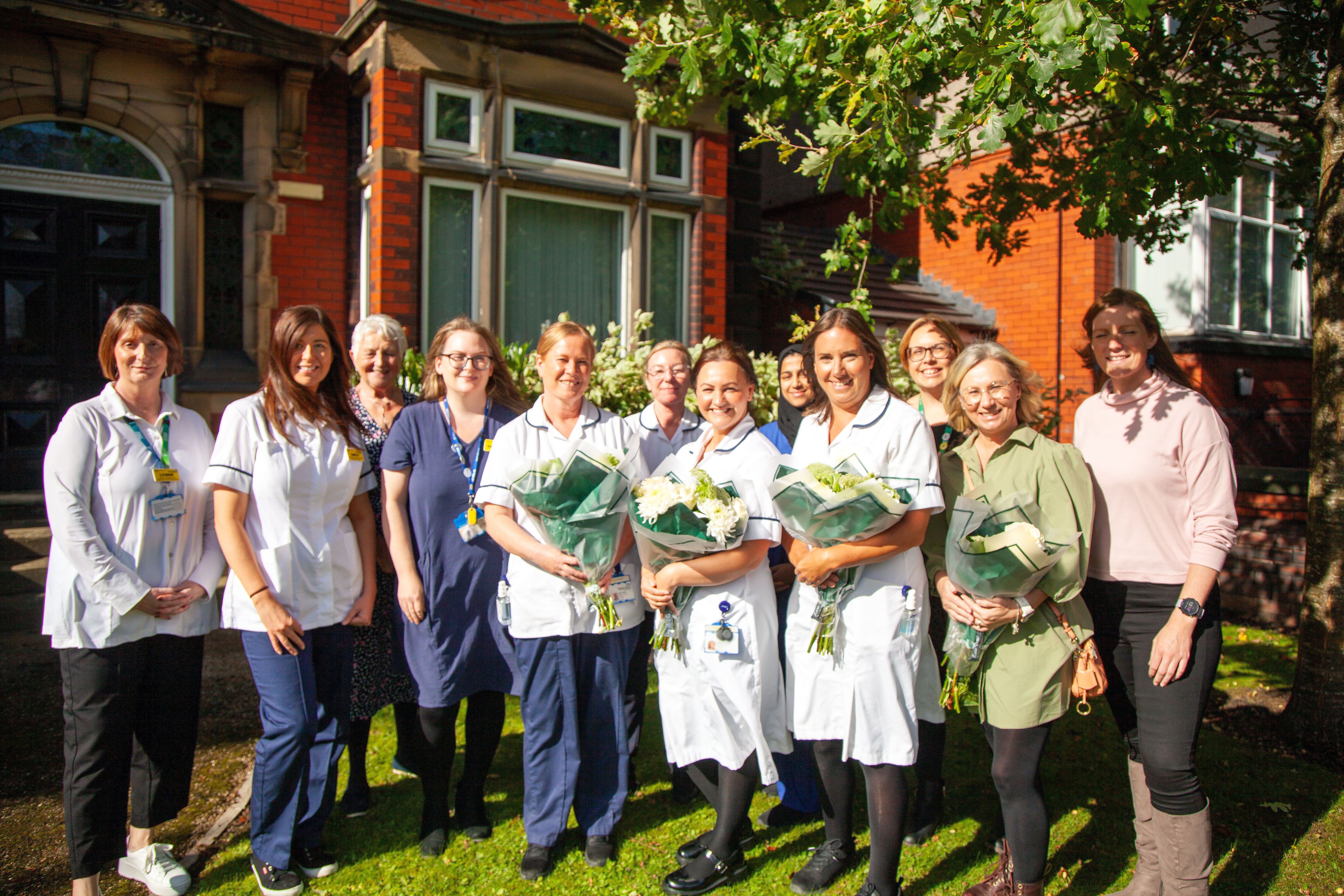
A service that has changed the lives of some of Wigan’s smallest patients is celebrating its 20th anniversary.
Wrightington, Wigan and Leigh Teaching Hospitals NHS Foundation Trust’s Newborn Hearing Screening Programme (NHSP) went live in October 2004 and the team have since tested the hearing of thousands of babies across the Borough, discovering moderate, severe and profound deafness in newborns.
In 2023 alone, the NHSP screening team screened 3,145 babies, with 66 babies referred to audiology for further testing. On average, the team screens between 250 – 300 babies per month, with September usually their busiest month due to the number of babies being born. In England, around 680,000 babies are screened every year and 98% of these babies are screened within the first four weeks of their lives.
Emily Wood, Newborn Hearing Screening Local Manager, said: “We are so pleased to be celebrating 20 years of the Newborn Hearing Screening Service at WWL. We are a small but fantastic team with a tremendous amount of experience and knowledge which has successfully supported many families over the last 20 years. I would like to personally thank our screeners, they are an amazing team to lead and their long-standing commitment to the service has been instrumental to the families that they have worked with.”
All babies born in England are offered a hearing screen at up to five weeks of age and the team, who are based on the Neonatal Unit at the Royal Albert Edward Infirmary (RAEI) in Wigan, aim to see babies before they leave the maternity ward. It is here that a complete Automated Otoacoustic Emission (AOAE) screen is completed. If a clear response is not received a further Automated Auditory Brainstem Response (AABR) screen takes place. If a clear result is still not received following both tests, it is then that a referral to Paediatric Audiology for a diagnostic assessment will take place.
Finding out about hearing loss early gives babies a better chance of developing language, speech and communication skills as well as making sure their families receive the support they need. For babies who require them, hearing aids are normally fitted by six weeks old, which allows them to develop at the same rate as their peers.
Debbie Wilson has worn hearing aids since the age of four as she is a carrier of a genetic syndrome called Branchio-Oto-Renal syndrome (BOR), which can affect hearing and has a 50% chance of being passed on.
Having experienced hearing tests since she was small, Debbie was interested to see how services had developed, particularly when her children were born in 2009 and 2014.
Debbie said: “In 2009, my first son, Billy, was born, and within the first 12 hours of his arrival, was tested. The screener was lovely and asked me a few questions about our family history and that sometimes the test can be affected because of either mucus/fluid in the ears or because of background noise. Billy failed his test, but the outcome was always inconclusive, and he only got aided at four years old.
“My second child, Nancy, was born in 2014, and failed her screening test at birth. Nancy was invited for a follow-up two weeks later and again, the team were all patient and very supportive. Nancy was aided a lot younger than Billy was, and I found this more beneficial for Nancy as her speech and understanding were a lot better than Billy was of that age.”
Debbie continued: “Our experiences of the service were very reassuring, supportive, and very honest. They always put my mind at rest even though I was an experienced hearing aid wearer. It was very interesting to see how much the service had not only developed from when I was younger but to Billy in 2009, then to Nancy in 2014.
Back in 2004, screening equipment looked different than it does today. Screeners carried bulky laptops to complete the AOAE part of the screen and a separate AABR machine for the second part. This equipment was transported from the wards to community clinics each week to cover all areas of the borough. Today, we have small, combined testing machines located across all sites.
Louise Jepson, from Aspull, and her daughter, Lexiemae, were screened on the maternity ward at RAEI.
Louise said: “Without the Screening Service seeing Lexie when she was a newborn, we would never have picked up Lexie’s deafness, as we have no previous family history of hearing loss.
“Lexie was referred to the team at Platt Bridge Health Centre and was fitted for hearing aids a few weeks later, she still goes there for hearing tests and new moulds. They really are an amazing team. She is 15 now and, if it wasn’t for the screening test, then she wouldn’t be achieving as she is now; preparing for her GCSEs with hopes to study law.”
Three screeners, Jane Kenyon, Sharon Hoban and Deborah Lowe, started back in 2004 and still work in the team today. Dawn Baggaley is also still with the team after joining in 2005.
They said: “The service has changed massively over the last 20 years, but we are pleased with the number of families we have been able to support during its developments. We enjoy working with the families and meeting their new additions and we look forward to many more years of the Newborn Hearing Screening team.”